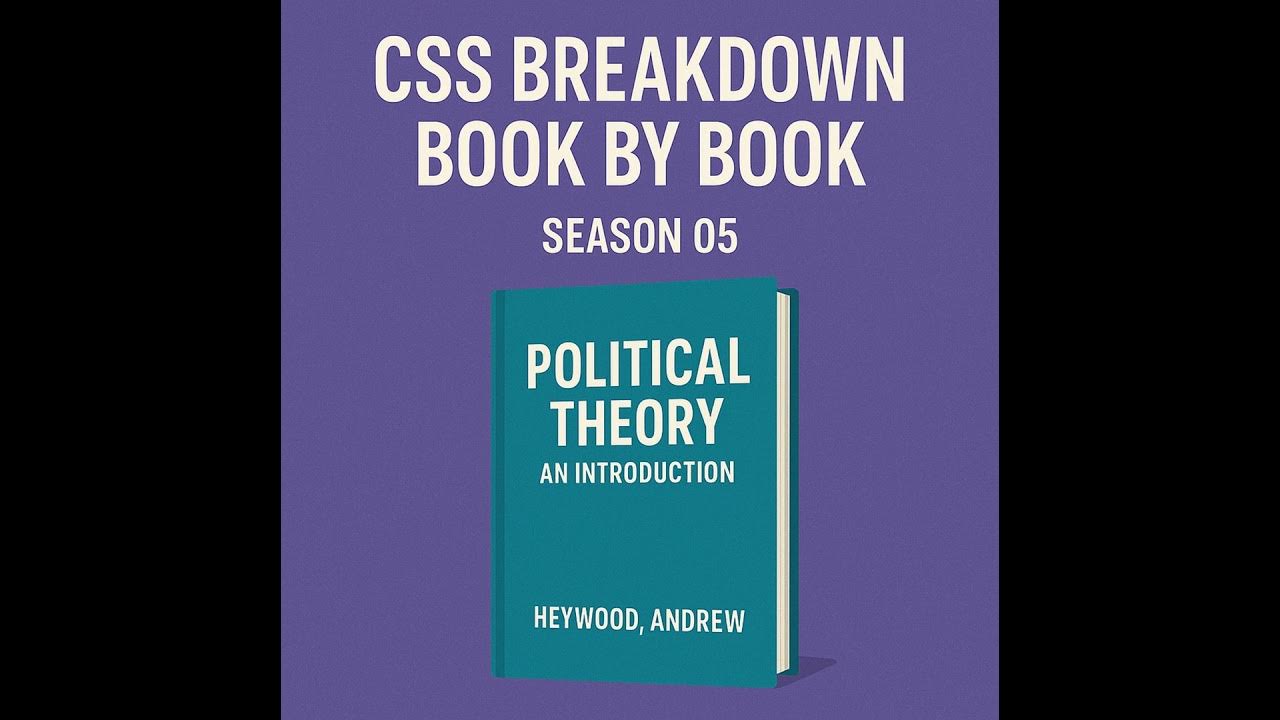Apakah Filsafat Sudah Mati? Atau Kita Mati Tanpa Filsafat?
Summary
TLDRThis transcript delves into the relevance and utility of philosophy in Indonesia today, emphasizing its role in addressing global challenges like climate change and social issues. The speaker contrasts Western philosophical movements, from premodernity to postmodernism, with Indonesia's educational and political frameworks, such as Pancasila and the teachings of Taman Siswa. The speaker argues for the importance of philosophy in shaping practical solutions to issues like deforestation, gender studies, and education. Ultimately, they highlight how philosophy can influence both science and geopolitics, urging its deeper integration in Indonesia's academic and policy discussions.
Takeaways
- 😀 Philosophy and science are interconnected and must work together to address global challenges, like climate change, as seen in events like COP26.
- 😀 Philosophy should be cultivated not just by academics in Indonesia but also by leaders to address critical issues such as environmental ethics.
- 😀 Educational approaches in the UK and Indonesia differ significantly, with the UK emphasizing student-centered learning based on postmodern philosophy.
- 😀 Postmodernism challenges traditional ways of knowing, questioning objectivity and promoting the view that truth is shaped by narratives rather than universal principles.
- 😀 Western philosophy evolved from premodernity, where truth was seen as divine, to modernity, which emphasized rationalism and scientific inquiry, and then to postmodernity, which critiques reason itself.
- 😀 The scientific method, which relies on induction and experimentation, offers knowledge based on probabilities rather than absolute truths, which poses challenges in fields like climate change.
- 😀 Postmodernism influences contemporary issues like gender studies, where identity is seen as a product of group dynamics rather than individual attributes.
- 😀 In discussions on climate change and policy, scientific facts often intersect with political, economic, and philosophical viewpoints, complicating the resolution of global issues.
- 😀 Philosophy should be applied practically in Indonesia to address issues like climate change, with a philosophical foundation that includes respect for both environmental and ethical considerations.
- 😀 Indonesia must have a philosophical roadmap that combines indigenous values (e.g., Pancasila) with global concerns to better navigate its role in the world, especially in geopolitics and education.
Q & A
What is the main theme discussed in the transcript?
-The main theme of the transcript revolves around the relevance and utility of philosophy in Indonesia, particularly in relation to environmental issues, education, and geopolitics.
How does the speaker connect philosophy with the climate change discussions in COP26?
-The speaker highlights the importance of blending scientific inquiry with philosophical thinking to reach resolutions in global discussions like COP26, emphasizing the need for ethical considerations alongside scientific facts in addressing climate change.
What is the significance of 'philosophical movements' mentioned by the speaker?
-The speaker divides Western philosophy into three movements: premodernity, modernism, and postmodernism, explaining how each has influenced our understanding of human nature, truth, ethics, and politics, impacting the way problems are approached today.
What is the difference between premodern, modern, and postmodern views on truth and knowledge?
-In premodernity, knowledge was often considered to come from divine or supernatural sources. Modernism emphasized rationality and empirical evidence, leading to scientific methods. Postmodernism, however, questions the objectivity of truth and emphasizes the influence of social, political, and cultural contexts.
How does the speaker view the role of philosophy in education in Indonesia and the UK?
-The speaker contrasts the educational approaches of the UK and Indonesia, with the UK emphasizing student-centered learning influenced by postmodern philosophy, while in Indonesia, philosophical frameworks like Pancasila and Pancas Dharma guide the educational system.
What is the speaker's perspective on postmodernism's impact on education?
-The speaker suggests that postmodernism has influenced educational practices by emphasizing the deconstruction of traditional knowledge systems, including challenging absolute truths and encouraging a more relativistic view of knowledge, which affects how teachers and students interact.
How does the speaker argue that philosophy can address practical issues like climate change and geopolitics?
-The speaker advocates for the use of philosophical tools to solve practical issues, such as climate change, where ethical, political, and scientific perspectives must converge to create actionable solutions. They also emphasize the need for philosophical engagement in discussions about the role of nations like Indonesia in global geopolitics.
What is the role of 'moral capital' in Indonesia’s participation in global environmental discussions?
-The speaker raises the question of whether Indonesia possesses the 'moral capital' to actively contribute to global environmental discussions, asking whether Indonesia can take a more assertive role in addressing climate change and environmental ethics.
Why does the speaker believe philosophy is underappreciated in Indonesia?
-The speaker argues that philosophy is underappreciated in Indonesia because its practical applications are often overlooked, despite its potential to solve real-world problems. The speaker also highlights the importance of understanding philosophy to navigate complex global issues like climate change.
What are the implications of postmodern philosophy on debates about gender and science?
-The speaker discusses how postmodern philosophy challenges traditional views on gender and science, suggesting that identity and knowledge are shaped by social and cultural narratives rather than being objective truths, which creates conflict in academic discussions about topics like gender studies and biological differences.
Outlines

This section is available to paid users only. Please upgrade to access this part.
Upgrade NowMindmap

This section is available to paid users only. Please upgrade to access this part.
Upgrade NowKeywords

This section is available to paid users only. Please upgrade to access this part.
Upgrade NowHighlights

This section is available to paid users only. Please upgrade to access this part.
Upgrade NowTranscripts

This section is available to paid users only. Please upgrade to access this part.
Upgrade NowBrowse More Related Video
5.0 / 5 (0 votes)





